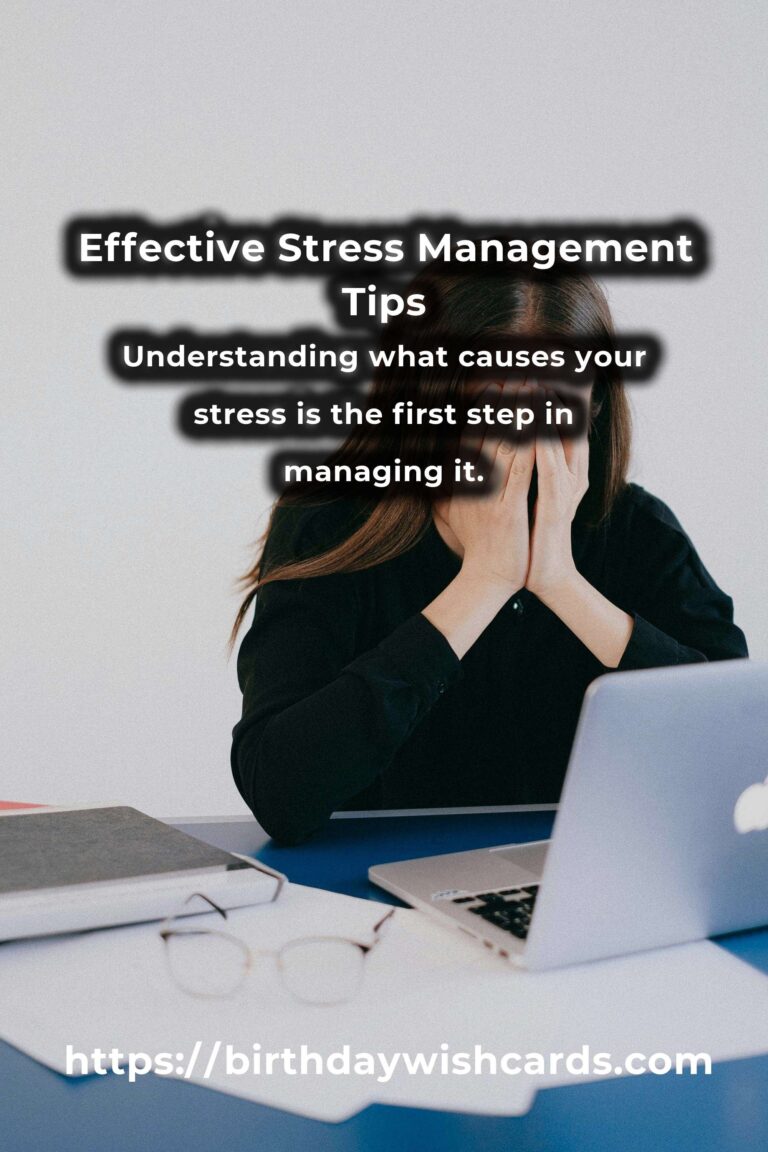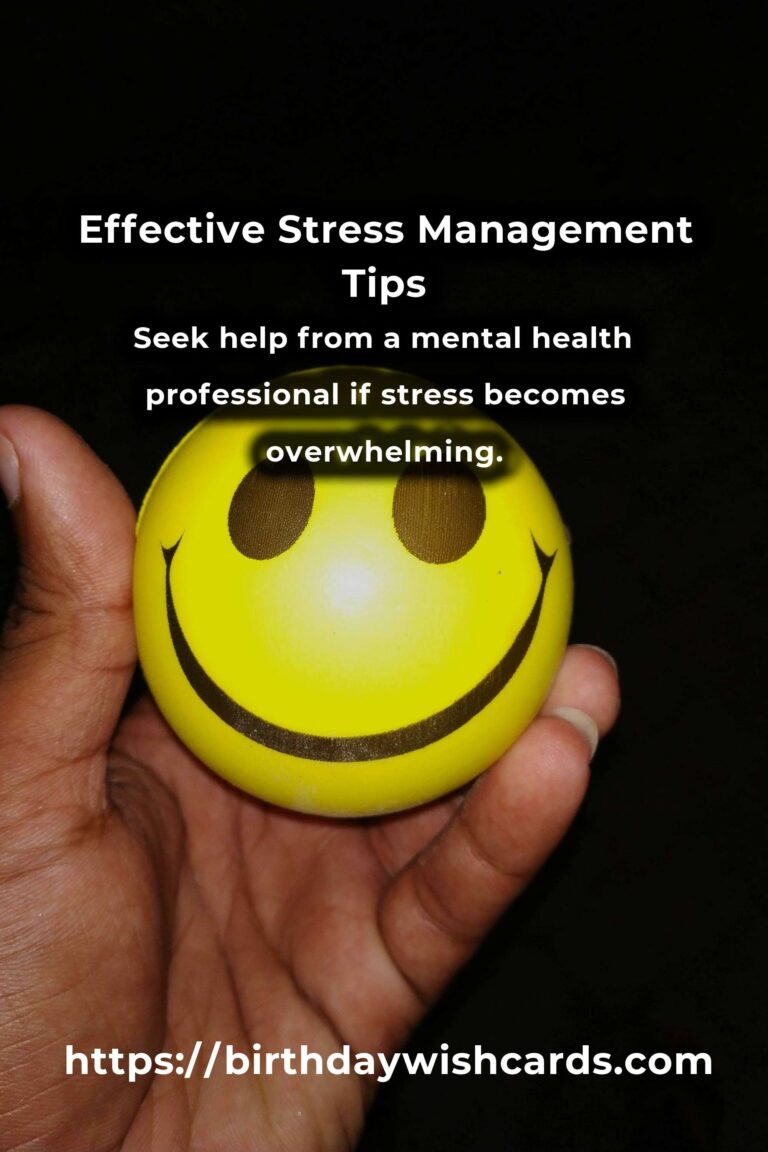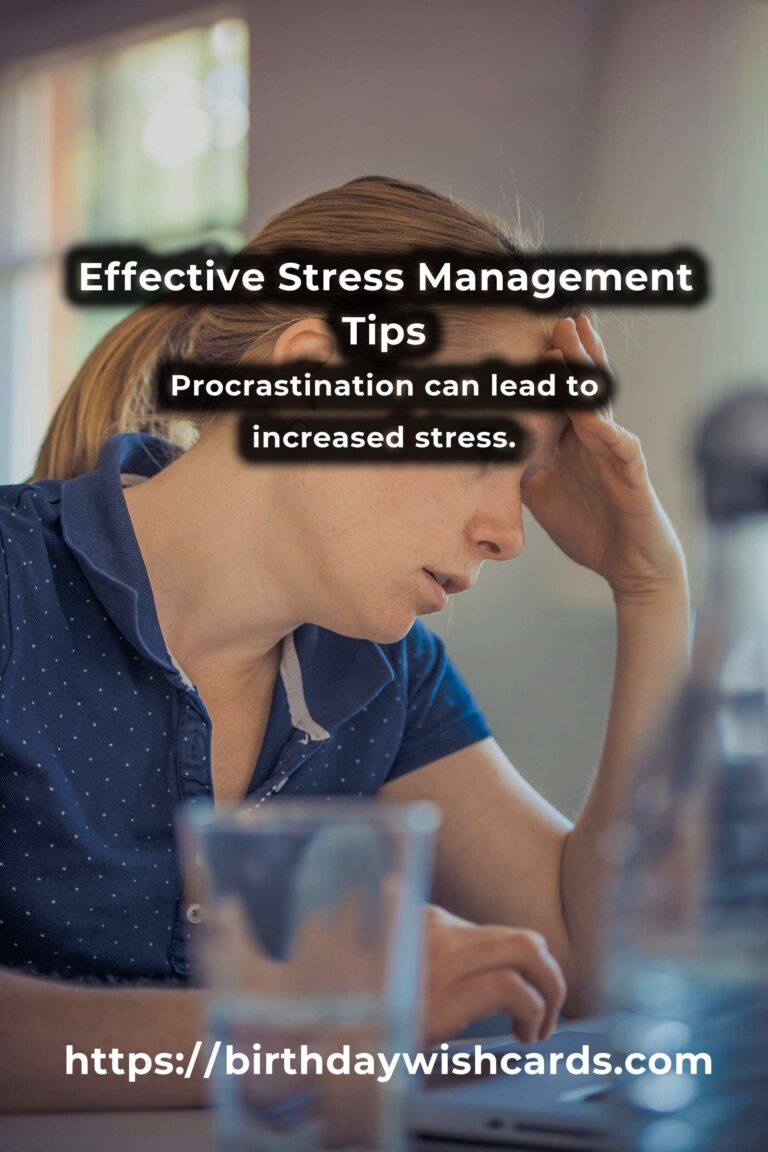
Stress is a common part of life, but managing it effectively can lead to improved health and well-being. Here are 16 tips to help you manage stress better.
1. Identify Your Stressors
Understanding what causes your stress is the first step in managing it. Keep a stress journal to identify patterns and triggers.
2. Develop Healthy Responses
Instead of turning to fast food or alcohol, develop healthier coping mechanisms like exercise, reading, or spending time with loved ones.
3. Establish Boundaries
Set limits to avoid burnout. Learn to say no to extra responsibilities when you’re already stretched thin.
4. Practice Relaxation Techniques
Incorporate relaxation techniques such as yoga, meditation, or deep breathing into your daily routine.
5. Get Regular Exercise
Physical activity can help reduce stress levels. Aim for at least 30 minutes of exercise most days of the week.
6. Maintain a Healthy Diet
A balanced diet can impact your mood and energy level, making it an important component of stress management.
7. Prioritize Sleep
Adequate sleep is essential for stress management. Aim for 7-9 hours of quality sleep each night.
8. Connect with Others
Social support from friends and family can provide comfort and help you manage stress more effectively.
9. Manage Your Time Wisely
Effective time management can reduce stress. Use tools like planners or apps to keep track of tasks and deadlines.
10. Avoid Procrastination
Procrastination can lead to increased stress. Tackle tasks as they come to avoid last-minute pressure.
11. Practice Mindfulness
Mindfulness involves focusing on the present moment, which can help reduce stress and improve overall emotional health.
12. Set Realistic Goals
Setting unattainable goals can increase stress. Make sure your goals are realistic and achievable.
13. Seek Professional Help
If stress becomes overwhelming, don’t hesitate to seek help from a mental health professional.
14. Learn to Forgive
Holding onto grudges can increase stress. Practice forgiveness to free yourself from negative emotions.
15. Laugh More
Laughter is a great stress reliever. Watch a comedy, spend time with funny friends, or find other ways to incorporate laughter into your life.
16. Cultivate a Hobby
Engaging in hobbies can provide a break from stress and give you something positive to focus on.
By incorporating these strategies into your life, you can manage stress more effectively and improve your overall quality of life.
Understanding what causes your stress is the first step in managing it. Develop healthier coping mechanisms like exercise, reading, or spending time with loved ones. Set limits to avoid burnout and learn to say no to extra responsibilities. Incorporate relaxation techniques such as yoga, meditation, or deep breathing into your routine. Physical activity can help reduce stress levels. A balanced diet can impact your mood and energy level. Adequate sleep is essential for stress management. Social support from friends and family can provide comfort. Effective time management can reduce stress. Procrastination can lead to increased stress. Mindfulness involves focusing on the present moment. Make sure your goals are realistic and achievable. Seek help from a mental health professional if stress becomes overwhelming. Practice forgiveness to free yourself from negative emotions. Laughter is a great stress reliever. Engaging in hobbies can provide a break from stress.
#StressManagement #WellBeing #MentalHealth #Relaxation #HealthyLiving













